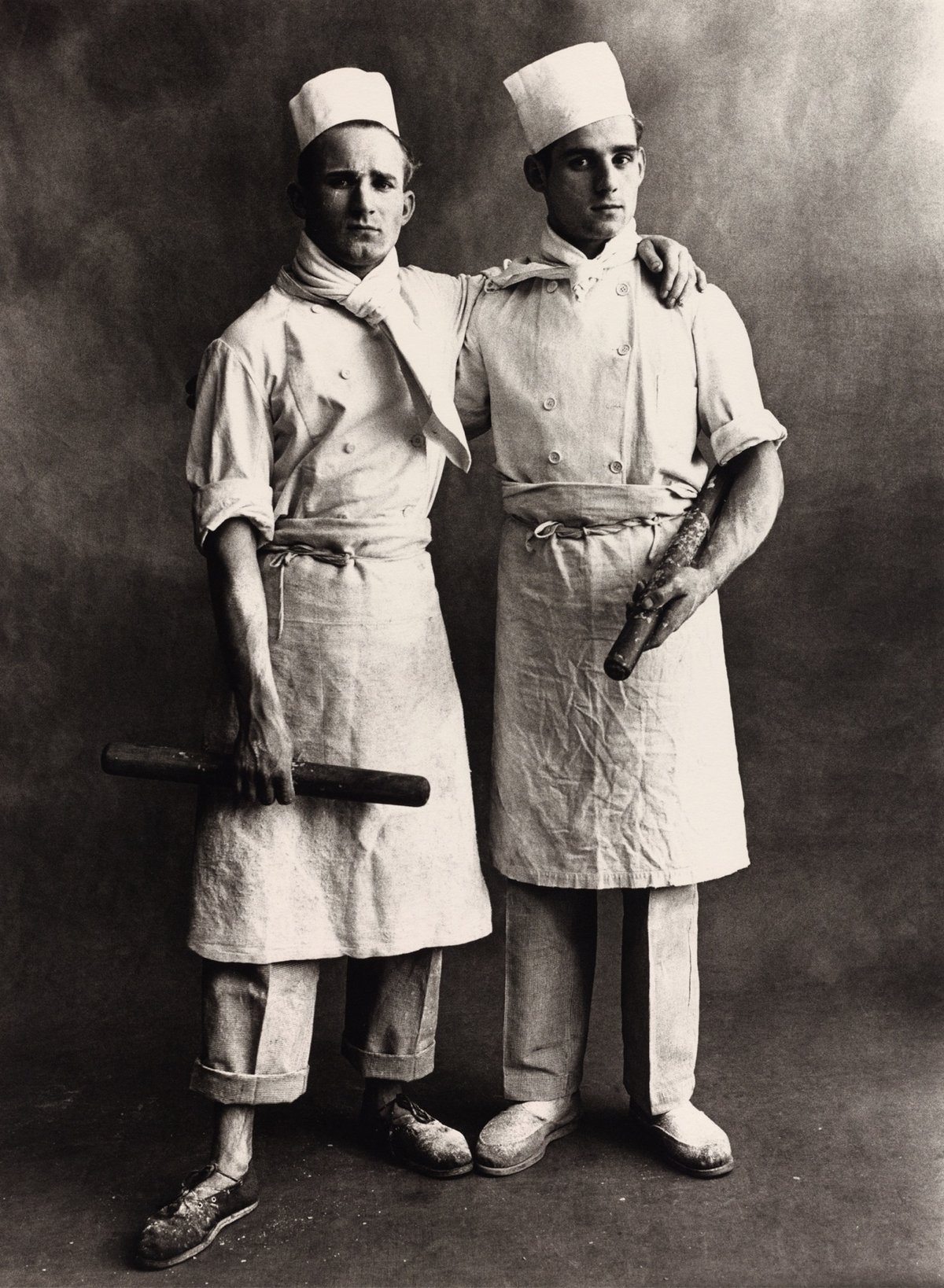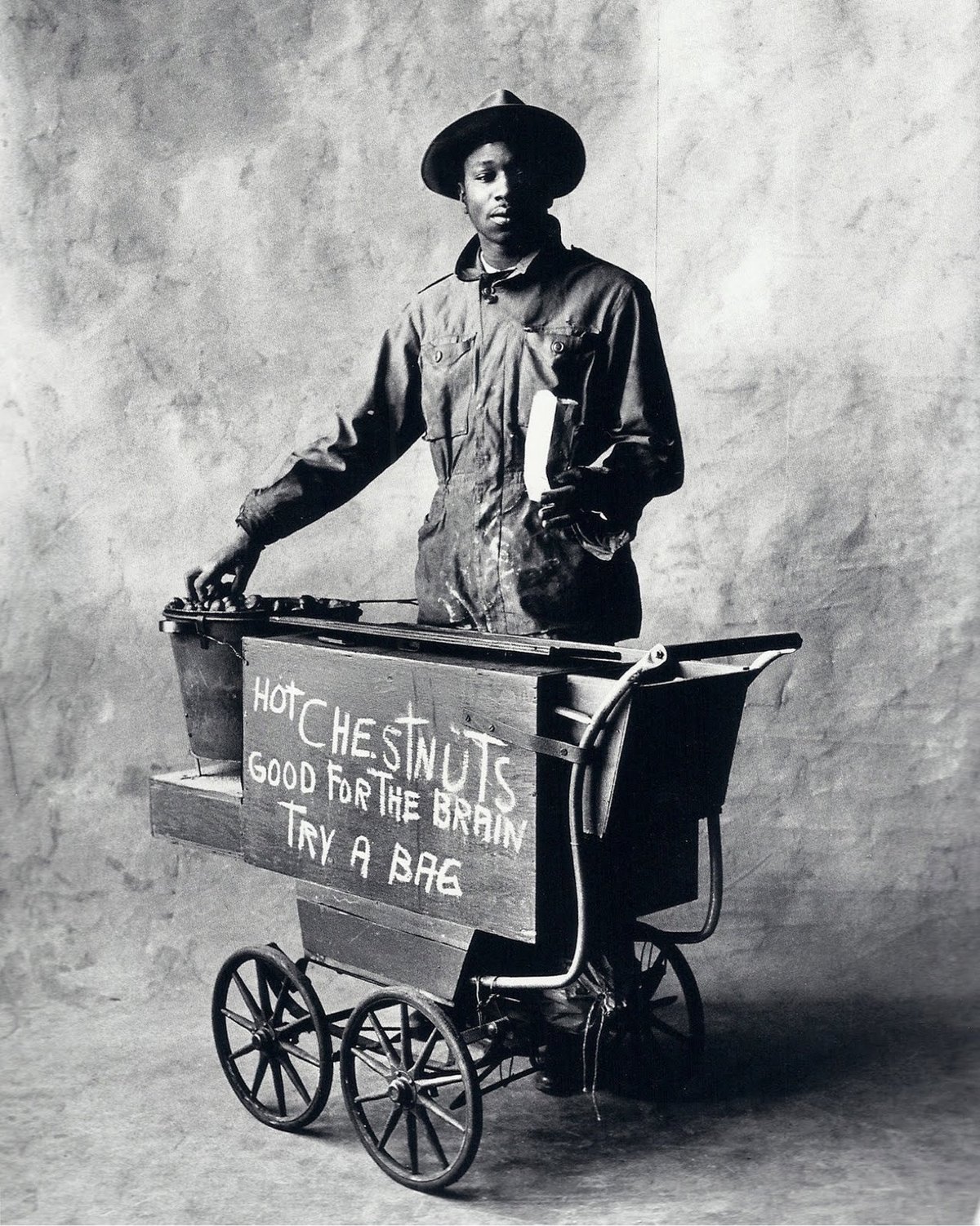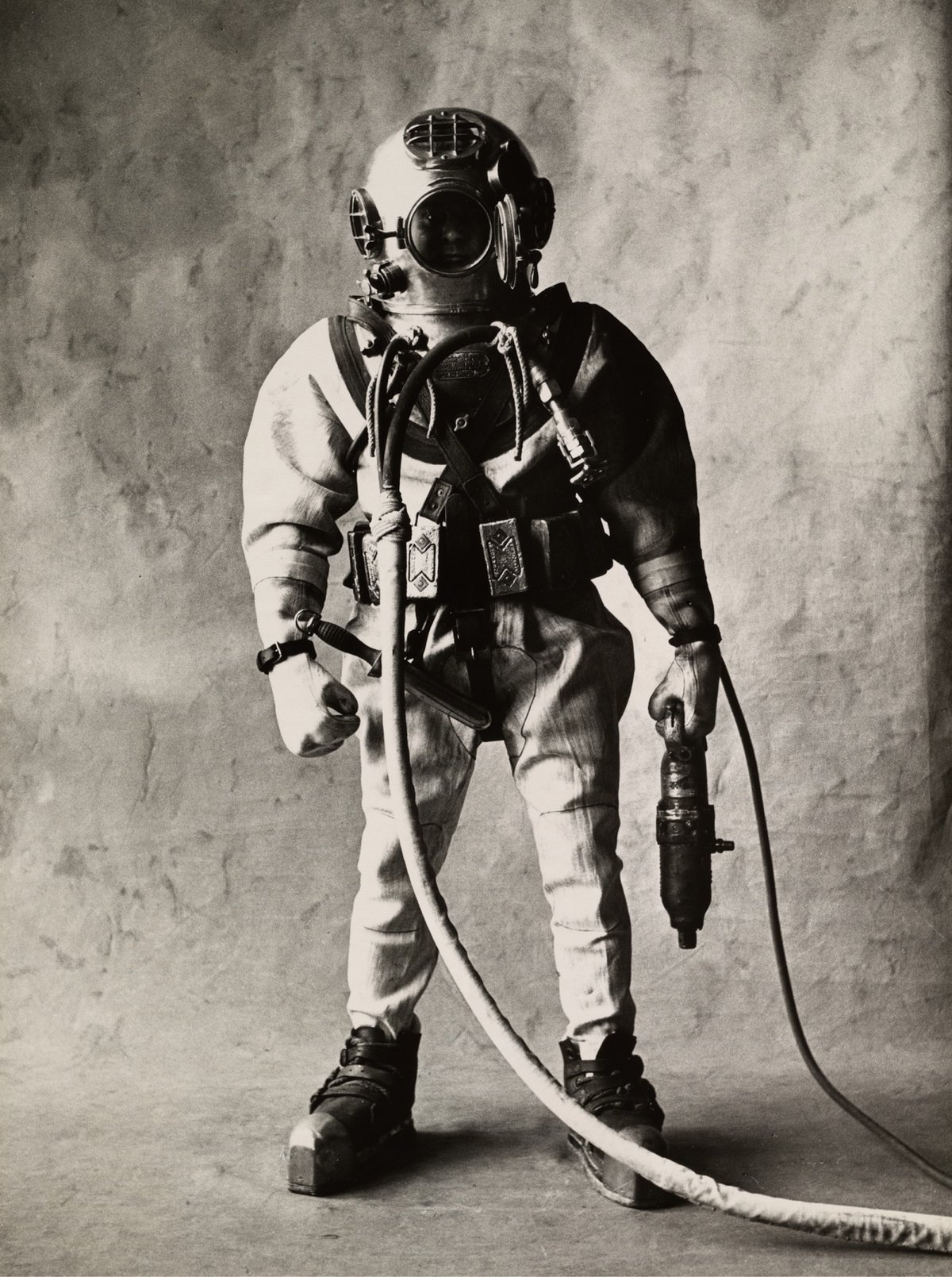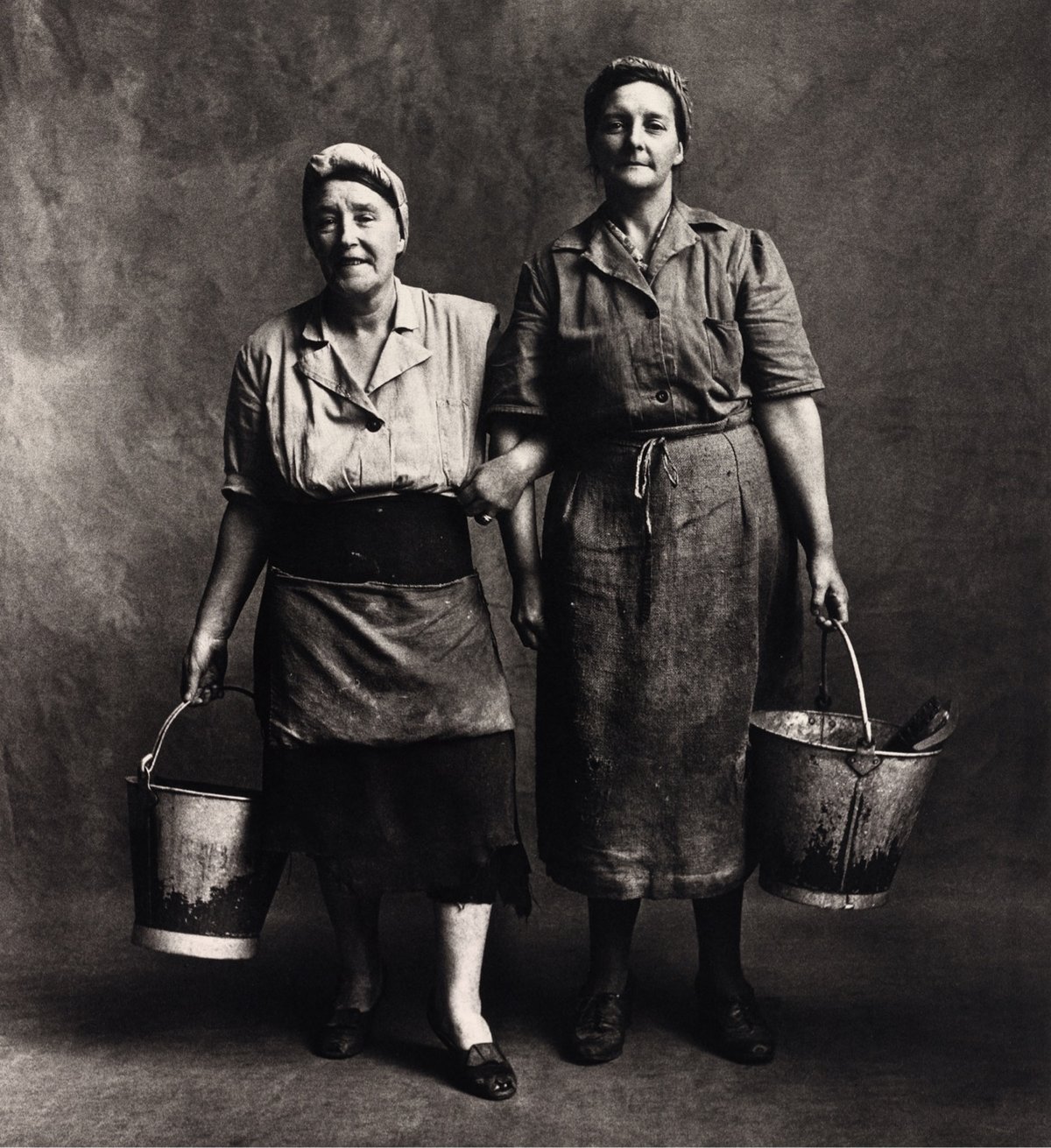Irving Penn: Small Trades

In 1950, master photographer Irving Penn set up a simple studio in Paris and started to photograph people of all kinds of professions, each wearing their work clothes and carrying the tools of their trade.

Working in the tradition of representing the petits métiers, Penn photographed fishmongers, firefighters, butchers, bakers, divers, baseball umpires, chefs, bike messengers, and sellers of goods of all kinds.

Penn continued photographing workers in New York and London, collecting the photos into a project called Small Trades.

Penn said of the project:
Like everyone else who has recorded the look of tradesmen and workers, the author of this book was motivated by the fact that individuality and occupational pride seem on the wane. To a degree everyone has proved right, and since these photographs were made, London chimney sweeps have all but disappeared and in New York horseshoers — hard to find in 1950 — now scarcely exist.
A possible companion to Penn’s photographs: Studs Terkel’s Working: People Talk About What They Do All Day and How They Feel About What They Do. (Fun fact: Terkel and his editor got the idea for Working from Richard Scarry’s children’s book, What Do People Do All Day?)





Comments 2
Before Irving Penn, August Sander made many memorable portraits of workers in Germany. The update to Studs Terkel's book is Gig: Americans Talk About Their Jobs, published in 2001 so a bit of a time capsule but still fascinating. One of the best things I read this summer.
August Sander is a major German photographer. His first book Face of our Time (German: Antlitz der Zeit) was published in 1929. Sander has been described as "the most important German portrait photographer of the early twentieth century".
To tell the truth, I think Penn was not so inspired in this Small Trades project... I'd trade three shots of Penn for one from August Sander.
Hello! In order to comment or fave, you need to be a current kottke.org member. If you'd like to sign up for a membership to support the site and join the conversation, you can explore your options here.
Existing members can sign in here. If you're a former member, you can renew your membership.
Note: If you are a member and tried to log in, it didn't work, and now you're stuck in a neverending login loop of death, try disabling any ad blockers or extensions that you have installed on your browser...sometimes they can interfere with the Memberful links. Still having trouble? Email me!
In order to comment or fave, you need to be a current kottke.org member. Check out your options for renewal.
This is the name that'll be displayed next to comments you make on kottke.org; your email will not be displayed publicly. I'd encourage you to use your real name (or at least your first name and last initial) but you can also pick something that you go by when you participate in communities online. Choose something durable and reasonably unique (not "Me" or "anon"). Please don't change this often. No impersonation.
Note: I'm letting folks change their display names because the membership service that kottke.org uses collects full names and I thought some people might not want their names displayed publicly here. If it gets abused, I might disable this feature.
If you feel like this comment goes against the grain of the community guidelines or is otherwise inappropriate, please let me know and I will take a look at it.
Hello! In order to leave a comment, you need to be a current kottke.org member. If you'd like to sign up for a membership to support the site and join the conversation, you can explore your options here.
Existing members can sign in here. If you're a former member, you can renew your membership.
Note: If you are a member and tried to log in, it didn't work, and now you're stuck in a neverending login loop of death, try disabling any ad blockers or extensions that you have installed on your browser...sometimes they can interfere with the Memberful links. Still having trouble? Email me!